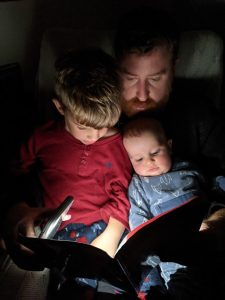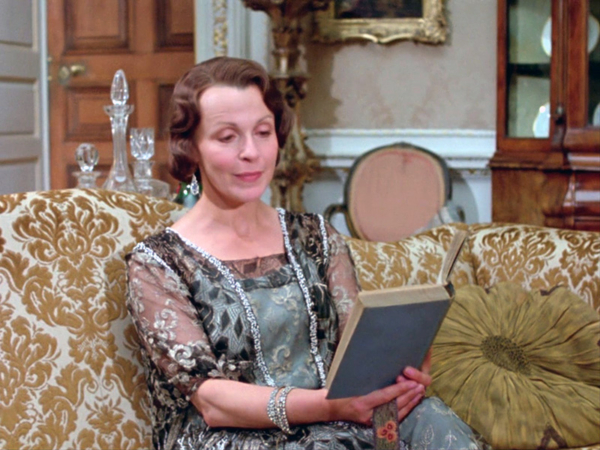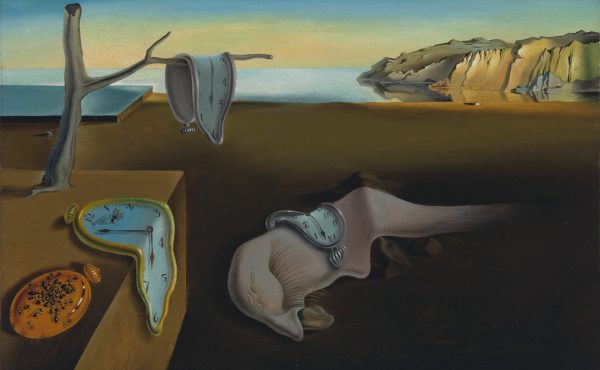‘Literature has to do, in one way or another, with our deepest desires in this life, for on a profound level literature engages our concrete existence, with its innate tensions, desires and meaningful experiences.’
– Pope Francis, On the role of literature in formation
Since the earliest days of her life ‘on the outside’, I have read to aloud to my daughter. This has carried on as new members of the family have arrived, and very quickly this nightly ritual became a staple of the bedtime routine. Together this practice has seen us exploring fascinating new worlds (as well as our own), embarking on perilous adventures, and experiencing both great pain and sorrow, as well as great triumph, and joy.
When I first began to read aloud it was certain that my young child was not able to comprehend the tale that was being told. While during the daytime we’d spend countless hours thumbing through the pages of the Very Hungry Caterpillar, or of the various ‘Hairy McClary’ books and the like, again and again, and again, the extended ‘chapter books’ as we called them were without a doubt too lengthy for a eighteen-month-old to grasp. But that did not stop us – in fact, if I was too tired to read one night I would be severely reprimanded for any attempt to weasel out of my nightly commitment.
No doubt there are a multitude of studies which will tell of the benefits that reading aloud to children has for their developing brains. And while I am happy to take for my children whatever benefit may come of this practice (and to recognize the privilege that it gives them), the practice, as it has developed in my home, is not the result of calculations designed to advantage them in the future marketplace of employability.
When first sitting down to read my primary motivation was simply the desire to share something with my child (and then, children). The fulness of the world, in all its ferociousness and beauty, and all its ferocious beauty, is not something that can be easily communicated to such little people in explicit lessons. When I first chose a book and sat down to read, my hopes were that the tales would enliven and stir the imagination. I chose books that I had previously read (shamefully I had read only too few!), books that came recommended, or books which I had never read but had always wanted to. We’ve read through A. A. Milne, Lewis and Tolkien, the tales of Anne of Green Gables, the Wind in the Willows, Dickens’, ‘A Christmas Carol’, and so many more – including some pretty chilling fairy tales from the Blue Book and the Brothers Grimm. Truth be told, I would (and still do) often continue reading aloud well after my intended audience had drifted off to sleep.
Reflecting on the medium of story, particularly those stories written by masters of the craft, I am reminded that story – analogy and metaphor – are perhaps the best way in which we can learn. In fact, according to the psychiatrist, neuroscience researcher, philosopher and literary scholar, Iain McGilchrist, ‘metaphor is the only way of understanding anything’. This likely explains why Jesus taught so frequently in parable.
In reading aloud (to my children), I have had the opportunity to really ponder the meaning of things. I’ve been able to share a great many laughs and not a few tears. I’ve seen my children dealing with real conundrums concerning the meaning of life and death, the value of struggle, the insanity of vice and the heroism of virtue.

The home, as we know, is the primary place of education – not only of children, but of all of us. In the home the moral imagination is trained, our habits are formed (whether they be virtuous or vicious), and our loves are shaped. The task of the education children is a weighty one, and one which makes tremendous demands of parents. This is not simply a matter of weighing up which school will best suit little Johnny or Mary (although it may likely include such a task), nor is it simply a matter of explicitly imparting factoids or overt moral maxims concerning this or that. Education, as we have discussed (here, here, and here), concerns so much more than this—it is what Luigi Giussani (following Josef Jungmann) described as an ‘introduction to total reality.’ How we go about making this introduction is not something that can be neatly distilled into a blog post or a series thereof. Thinkers throughout the ages have spilled barrels of ink noting down their thoughts and making arguments about which approach is best to take and/or avoid. One thing that Christians should be striving for is to introduce one’s children to reality in its fulness (what Giussani referred to as total reality, ‘reality according to the totality of its factors’). The reading of literature has opened to us all—both to myself and to my children—not only the adventures of fictious worlds, but the true depths and beauty of this world, of the real world. And it is a depth and a beauty that we all continue to look forward to exploring.



